 Electrum, a leading renewable energy company in Poland, invites high school students from the Podlaskie Voivodeship to participate in the #ClimateTech YoungTalents contest. The aim of the competition is to promote creativity and innovation in the field of green energy. We want to encourage young people to take active steps towards preventing climate change and improving the state of the environment in their region.
Electrum, a leading renewable energy company in Poland, invites high school students from the Podlaskie Voivodeship to participate in the #ClimateTech YoungTalents contest. The aim of the competition is to promote creativity and innovation in the field of green energy. We want to encourage young people to take active steps towards preventing climate change and improving the state of the environment in their region.
What is the #ClimateTech YoungTalents contest about?
The competition involves preparing and submitting a contest entry that presents an idea for using renewable energy technology. To address a problem related to climate change or the state of the environment in the participant’s surroundings. This problem should be significant from the perspective of the local community, and the solution should be realistic, practical, and effective. The contest entry can be in written, graphic, or multimedia form.
Who can participate in the contest?
The #ClimateTech YoungTalents competition is open to students in the final two grades of high school in the Podlaskie Voivodeship. Participants can enter individually or in teams of up to three people.
How to enter the contest?
To enter the contest, you must:
- Fill out the registration form available on the project’s website: www.electrum.pl/climatetech
- Prepare the contest entry according to the rules and guidelines available on the project’s website
- Send the contest entry to the email address: climatetech@electrum.pl by April 2, 2024
What are the prizes in the competition?
From the submitted entries, the contest committee, consisting of experts from Electrum and the substantive partner, the Association of Science Advocates, will select the top three, whose authors will receive the following prizes: a paid internship at Electrum and modern e-book readers. The winners of the competition will be announced on the project’s website and on Electrum’s social media profiles.
Why participate in the contest?
Participating in the contest not only offers the chance to win attractive prizes but also:
- Develop your interests and passions related to renewable energy and environmental protection
- Establish connections with experts and mentors from Electrum and the Association of Science Advocates who will assist in preparing the contest entry
- Gain professional experience and practical knowledge through a paid internship at Electrum, a leader in the renewable energy industry in Poland
- Showcase your talent and creativity to a wide audience and the media
- Do something good for your local community and the natural environment
Where to find more information about the #ClimateTech YoungTalents contest?
If you want to learn more about the competition, we invite you to visit the project’s website: YoungTalents – Electrum Holding. There you will find all the necessary information, rules, registration form, and schedule of consultations with mentors. You can also follow our social media profiles on Facebook and Instagram. We will post updates and interesting facts related to the competition. If you have any questions or concerns, please contact us at the email address: climatetech@electrum.pl.
Let’s start a new chapter together, inspiring youth to take action for green energy!

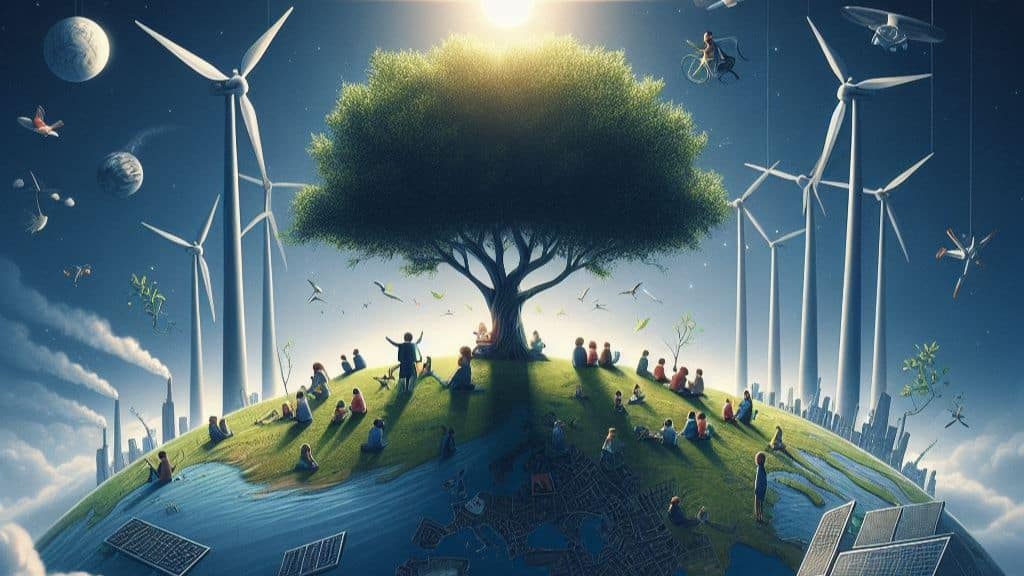
 Climate change is one of the greatest challenges facing humanity in the 21st century. According to the IPCC report of 2021, human activity is the main cause of the increase in global temperature, which has already exceeded 1°C compared to pre-industrial levels (1).
Climate change is one of the greatest challenges facing humanity in the 21st century. According to the IPCC report of 2021, human activity is the main cause of the increase in global temperature, which has already exceeded 1°C compared to pre-industrial levels (1).  In preschool and primary school, introduce basic concepts and phenomena related to climate and RE, e.g., through weather observation, experiments, games, storytelling, songs, or drawings. Organize trips to places related to RE, such as wind farms, solar farms, or biogas plants. It is important to foster children’s curiosity and interest in the natural world and to develop attitudes of respect and care for the environment.
In preschool and primary school, introduce basic concepts and phenomena related to climate and RE, e.g., through weather observation, experiments, games, storytelling, songs, or drawings. Organize trips to places related to RE, such as wind farms, solar farms, or biogas plants. It is important to foster children’s curiosity and interest in the natural world and to develop attitudes of respect and care for the environment.
 Electrum Concreo, a company operating within the Electrum group with a climate tech profile, has previously collaborated with PAD RES as a general contractor on several projects. It has previously completed the construction of the 35 MW Genowefa photovoltaic farm, located in central Poland, and is currently constructing two solar facilities with a total capacity of 117 MW in Sztum and Mikołajki.
Electrum Concreo, a company operating within the Electrum group with a climate tech profile, has previously collaborated with PAD RES as a general contractor on several projects. It has previously completed the construction of the 35 MW Genowefa photovoltaic farm, located in central Poland, and is currently constructing two solar facilities with a total capacity of 117 MW in Sztum and Mikołajki.
 Energy management is the process of planning, monitoring, controlling, and optimizing energy consumption and production. This enables increased energy efficiency, cost and emission reduction, and improvement in energy supply reliability and security. It covers both individual (e.g., homes, buildings, vehicles) and collective (e.g., grids, systems, regions, countries) levels.
Energy management is the process of planning, monitoring, controlling, and optimizing energy consumption and production. This enables increased energy efficiency, cost and emission reduction, and improvement in energy supply reliability and security. It covers both individual (e.g., homes, buildings, vehicles) and collective (e.g., grids, systems, regions, countries) levels. Energy producers and suppliers – by increasing the efficiency and profitability of energy production and distribution, improving the quality and reliability of services, enhancing competitiveness and innovation, facilitating the integration of renewable energy sources, and meeting regulatory and market requirements.
Energy producers and suppliers – by increasing the efficiency and profitability of energy production and distribution, improving the quality and reliability of services, enhancing competitiveness and innovation, facilitating the integration of renewable energy sources, and meeting regulatory and market requirements.

 It is important for scientists, engineers, and entrepreneurs to collaborate on further developing this promising synergy between life science and renewable energy sources. Only through joint work and innovation can we create more sustainable and efficient energy solutions that will serve future generations.
It is important for scientists, engineers, and entrepreneurs to collaborate on further developing this promising synergy between life science and renewable energy sources. Only through joint work and innovation can we create more sustainable and efficient energy solutions that will serve future generations.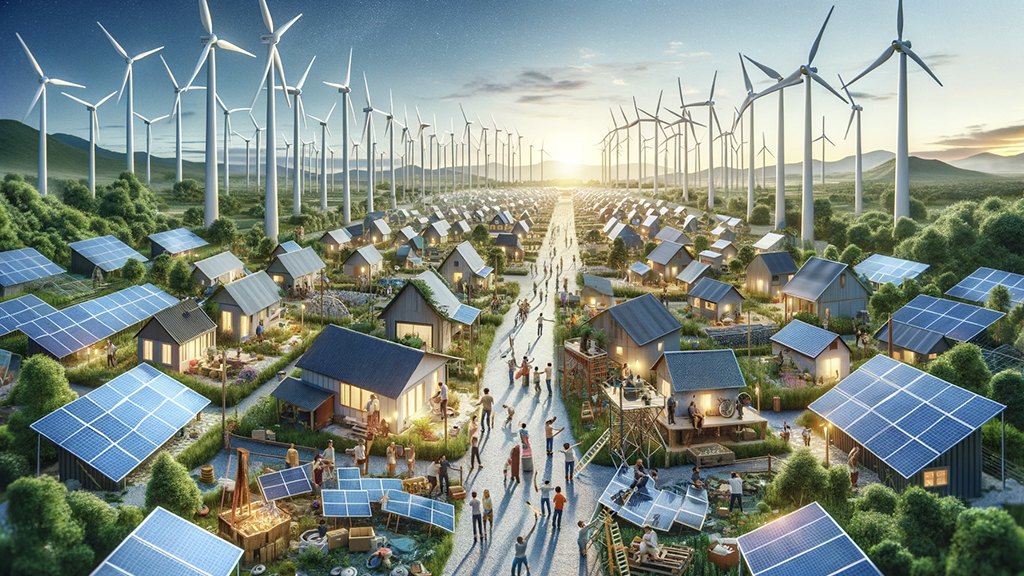
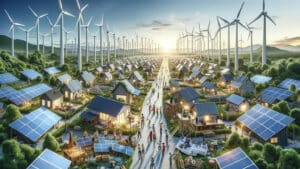 Introduction to Energy Transformation
Introduction to Energy Transformation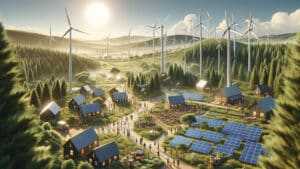 Conclusion: Transformation is Possible
Conclusion: Transformation is Possible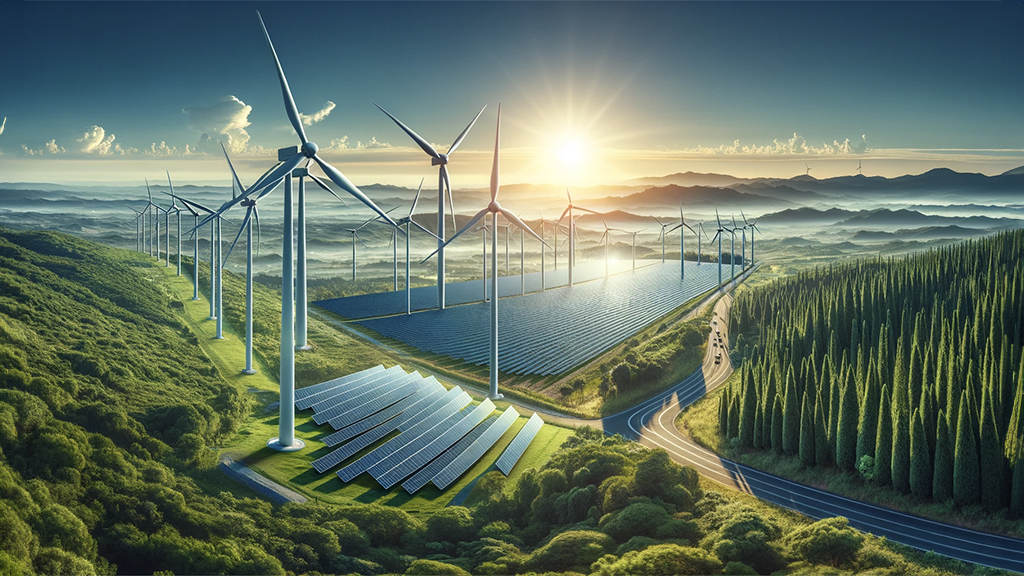
 Green Light for the Earth
Green Light for the Earth



